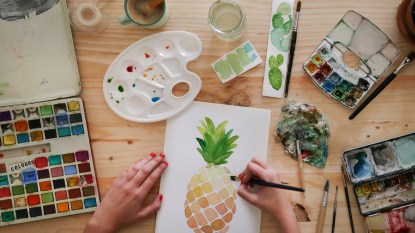Not Correcting These Vision Problems Could Increase Your Risk of Developing Depression

Great eye health offers more than being able to fully take on the beautiful holiday displays during this time of the year. It turns out the quality of our vision can have an impact on our overall mood and mental health. New research suggests that vision problems such as cataracts and glaucoma are associated with a great risk of depression.
A recent study published in Menopause looked at how poor eyesight can be a contributing factor for depression in midlife women (ages 40 to 65). The researchers decided to look into this connection because women in this age group have reported higher rates of depression than any other age range. Also, depression is more prevalent in women than men. This study included 226 women with an average age of 50 who were tested on the degree of their vision loss on six separate occasions. Each participant’s vision impairment was defined as either mild or moderate-severe. Researchers also measured depressive symptoms during each visit.
By the end of the study, researchers found that moderate-severe impaired vision was associated with a greater likelihood of developing depression in the future. This led to the study authors concluding that addressing vision issues early on can help avoid depression over time. “Given that the combination of visual impairment and depression has a particularly devastating effect on physical and mental health, correcting vision problems early is important for future quality of life,” Stephanie Faubion, MD, said in a statement.
The good news is there are some easy ways to preserve your vision every day! Your diet can play a huge factor in your eye health as it’s a surefire way to supply your body with vitamins and nutrients that can help keep vision loss at bay. Eating vitamin A-rich foods such as spinach, pumpkin, and red peppers can help you avoid a deficiency of this key vitamin, which might hinder your eyesight.
Also, starting off your day with eggs or a glass of orange juice works wonders for improving vision. Indulgent favorites like red wine and dark chocolate are packed with antioxidants known as flavonoids that nix oxidative stress and boost blood circulation in eyes (your next post-dinner treat!).
Another way to boost eye health is by doing 30 minutes of exercise each day whether that’s walking outside to soak up the crisp fall air or taking a bike ride. This healthy habit has been shown to slow cataract growth by 70 percent. Giving your eyes a workout through daily eye yoga can also reverse vision loss. Paul McCartney has even credited these eye exercises for helping him avoid needing to use glasses at 79!
Along with these daily habits, be sure to visit your eye doctor for an annual comprehensive eye exam and additional guidance on other ways to preserve your vision as you age. Keeping all of these things in mind could help maintain your vision and your mental health as you age.













